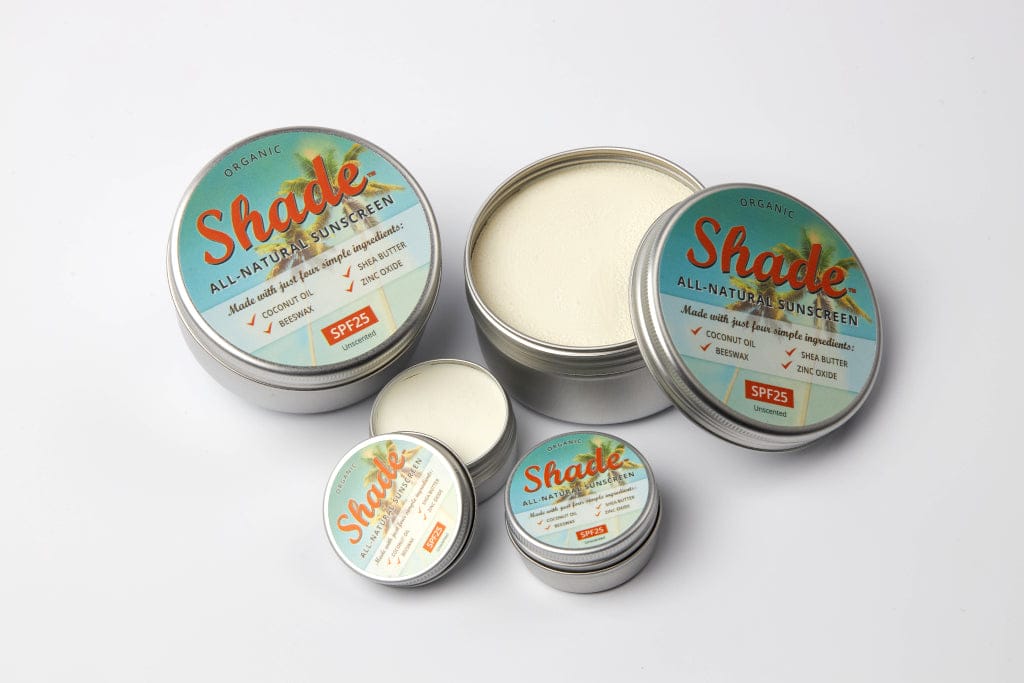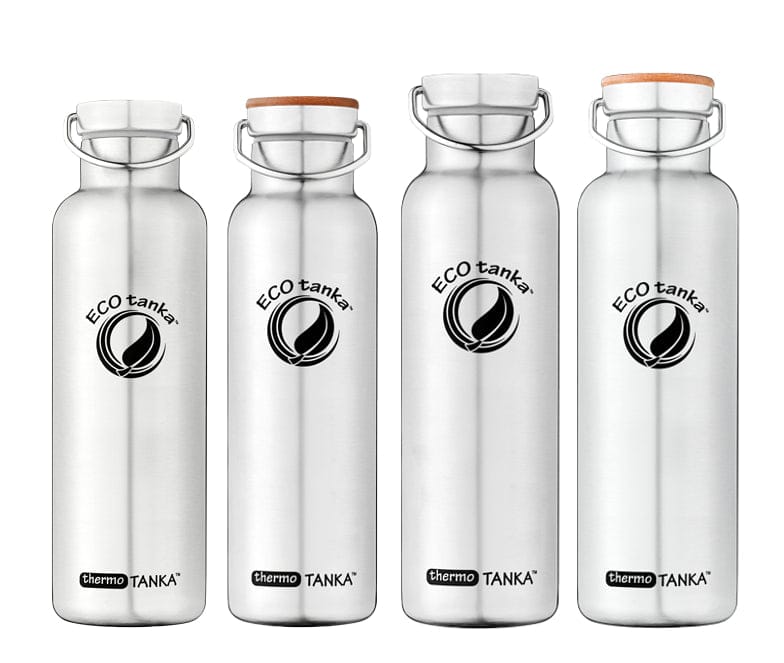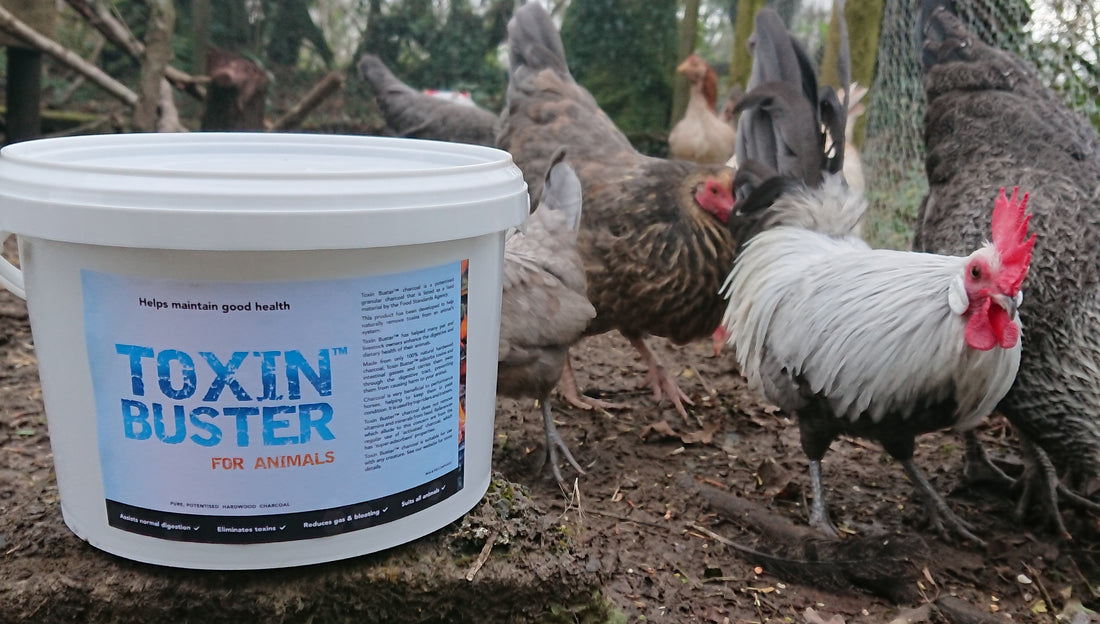In the same way that spectacles help focus poor eyesight but have no medicinal properties themselves; or walking sticks help people walk but have no medicinal properties themselves so non-activated hardwood charcoal helps all creatures avoid illness but has no medicinal properties itself.
How it works
The principal way in which non-activated hardwood charcoal works is by re-balancing the acid/alkaline of the digestive system. It is comparable to passing a superb biological filter through the system where it adsorbs toxins and re-balances without adding anything to, or burdening, the system in any way. Its role is a passive one.
The re-balancing of the pH facilitates an environment where minerals, vitamins and nutrients are utilised at their optimum. The trickle feeding of Toxin Buster charcoal to equines, cattle, companion animals (and all other creatures) daily helps maintain condition, good temperament, and excellent performance all round.
For animals with gut-related problems this is the safest and most effective feed supplement with which to address these issues. Results are very quick, there are no detrimental side effects, it’s easy to use and very economical.
So, what is it?
Toxin Buster is made up of specially selected, 100% pure, non-activated hardwood charcoal sourced from sustainable woodlands. It contains no fillers, binders, or additives. It is made from naturally active charcoal produced in a traditional way.
We chose a particular hardwood charcoal for our product because of its superior and special properties.
NOTE: This type of charcoal is an approved feed material, whereas activated or medicinal / industrial charcoal is not an approved feed material. Medicinal / activated charcoal has its place in medicine and industry but should not be used as a regular feed additive since, as a strong super-adsorbent, it can compromise mineral, vitamin, and nutrient levels.
ACTIVATED charcoal is a modern, man-made material. Mammals (including humans) that have consumed natural charcoal as part of their diet over the millennia would not have experienced, or evolved with, activated charcoal, which behaves differently from natural charcoal. They are not the same product.
Commercial quantities of activated charcoal are made from coconut shells (because there is an abundance of this material from the oil industry). To make powdered activated charcoal (PAC) usable it needs to be encapsulated in some way or pelletised. Pellets are made using a binder/s such as icing sugar, gum tragacanth, fats, oils, aspartame & etc. It is, therefore, not a pure product.
Natural charcoal on the other hand has been used for thousands of years as an aid to good digestion, and a healthy digestive system is the foundation of a strong immune system. Toxin Buster, made from natural charcoal only, adsorbs toxins and intestinal gases and removes them from the system naturally.
Toxin Buster charcoal is riddled with a network of crevasses, cracks, tunnels, and pores, so much so that the combined surface area of a 1cm cube would unfold to an area of around 500 – 1000 square metres! This tremendous surface area adsorbs a huge range of bad bacteria and toxins, making charcoal the undisputed champion of detoxifiers. Toxin Buster has a singular affinity for poisons and can remove them from the system.
Toxin Buster charcoal has, of itself, no medicinal properties since it is completely inert; it is not a medicine and is considered a passive substance by the BHA. It also complies with the FEI regulations.
IMPORTANT! Toxin Buster charcoal does not take out vitamins and minerals from the system. References which allude to this concern the regular use of ‘activated’ charcoal, which has superadsorbent properties.
In fact, field experience has shown that because it re-balances the system, Toxin Buster charcoal facilitates the uptake of nutrients, enabling animals that weren’t ‘doing well’ to gain weight and improve condition.
Toxin Buster charcoal and Organic farming.
It is our belief that Toxin Buster charcoal falls outside of the requirement for certification as “organic”. Our belief stems from the fact that the raw material source is solely hardwood (from sustainable sources), and in the manufacturing process all impurities are removed / carbonised rendering the product sterile, inert and passive.
Brief History & Difference Between Non-Activated & Activated Charcoal
Non-Activated charcoal is naturally active/adsorbent and has a long history of use as a filter, as an adsorbent, and as an antidote to poisons. Historical records of its use in these areas and others go far back into history as early as 1500 BC in Egypt. Hippocrates, circa 400 BC and then Pliny, AD 50 recorded the use of charcoal in a wide range of applications, and the principal use appears to have been to adsorb unpleasant odours, and gas/smells from within the intestinal tract.
In the days of sail, the Navy and other sailing fleets charred the inside of their oak water barrels to keep the water ‘sweet’. Archaeological evidence shows that our ancestors charred the ends of timber posts before driving them into the earth as a way of preserving these posts from rot.
Traditionally, charcoal would have been made from wood or bones, and the properties of charcoal varies with the raw material used in its manufacture. There are differences even in the charcoal made from soft woods as opposed to hardwoods, let alone from nut shells.
Charcoal has been used as a folk remedy as far back as recorded history. North American Indians used charcoal for the treatment of gas pains long before our forefathers went to that continent. Homeopathic physicians have used charcoal throughout the world for more than 200 years. Carbo animalis (animal charcoal) and carbo vegetabilis or carbo ligni (wood charcoal) have been carried in the homeopathic pharmacopoeia with the description that these substances have “marked adsorptive power of gases.” Charcoal is rated in Category I (safe and effective) status by the FDA for acute toxic poisoning and is used similarly in the UK. Allergies to charcoal have not been reported and it is inexpensive, harmless, and easily used. Charcoal was an official remedy in the pharmacopoeia for at least 100 years. However, it fell into general disuse in medicine following the phenomenal growth of the drug industry.
‘Activated’ (also known as medicinal) charcoal is new to mammals and our civilization. It was created initially for industrial use and commercial production of powdered activated carbon began in Europe in the early 19th century when it was widely used in the sugar industry. It is made from charcoal which has been subjected to the man-made processes of extreme high temperature steam and / or acid washing, to produce super adsorbents. Its use in other applications spread rapidly when it was accidentally discovered that it was effective in decolourising liquids. Industrial scale production began in the early part of the 20th century and the products are known as PAC (powered activated carbon) or GAC (granular activated carbon). Both are highly super adsorbents and, depending on the raw material used (e.g., nut shells), some can be even more so.
Toxin Buster charcoal is made from hardwoods (sustainably sourced) and is naturally ‘active’ and adsorbent. It is not ‘activated’ and is the type of charcoal we and other mammals have evolved with over the millennia. Its long legacy and history of safe and benign use stands witness to its efficacy.
Field observation of mammals in the wild eating charcoal:
The red colobus monkeys on Zanzibar Island, Tanzania prefer leaves of the exotic Indian almond and mango trees. These trees yield leaves high in protein, as well as secondary compounds, called phenols, which interfere with the monkey’s digestion.
For six years, anthropologist, Thomas Struhsaker of Duke University, studied the feeding behaviour of the Tanzanian red colobus. He noted that besides preferring almond and mango leaves, they also eat charcoal from charred stumps, logs, and branches, as well as from around man-made kilns.
Dogs today are direct descendants of the wolves we used to hunt in partnership with and some very interesting research carried out in Russia has shown that the emotional attachment that dogs have developed with humankind precisely reflects the behaviour of juvenile wolves in their dependent phase of life. Our ancestors by caring for, possibly, orphaned wolves, and breeding from those that were tolerant of human company developed not only an excellent hunting partner but a friend!
Humankind’s oldest friend has now, with selective breeding, ‘morphed’ into the hundreds of breeds that exist today and for whom we are responsible. Because dogs are hunters and scavengers by nature, they can tolerate a wide variety of food stuffs, however, they are basically carnivores with a digestive system designed to cope with meat.
Because meat ‘goes off’ quite quickly, carnivores have a smooth gut which helps them to pass food through their digestive system without any of it getting stuck in sacculations of the bowel (with which herbivores are equipped) and causing health problems.
Partly because of this mechanical advantage, dogs have a higher resistance to toxins than most other animals, but they do need lots of exercise to help their systems work properly. Exercise and a lean diet are very good for dogs (as they are for humans), but today most dogs get too much of one and not enough of the other (i.e., too much food and not enough exercise). This can result in a build-up of toxins, which threaten the immune system and lead to a general breakdown in health.
There is however a solution that is inexpensive and easy to apply, and which has stood the test of time for over 5,000 years of use in the human (and canine) population.
This solution is the regular addition of dietary charcoal to the dog’s food. Dietary charcoal has been used by humankind (and their dogs) for over 5,000 years as an antidote to poison and an aid to digestion. It’s safe to take over long periods because it’s inert (i.e., it doesn’t take part in or catalyse any chemical reactions) and simply adsorbs toxins. (No that’s not a misprint, adsorbs means binds to itself, whereas absorbs means takes in).
Used throughout the world as a superb filter material, charcoal takes many forms. The charcoal we use to make Toxin Buster is the best. Sourced from top quality sustainable sources and treated by a special process that our scientific team has developed, it is highly compatible with all mammalian systems. (A word of caution, many other charcoals are not).
Fed regularly to your dog (cat or any other mammal) Toxin Buster charcoal has the power to help maintain good health by removing toxins from the subject’s system.
Moreover, by taking out the toxic load, Toxin Buster helps reduce stress on the immune system enabling a better, stronger response to any health challenges which may arise later in life. Toxin Buster charcoal can absolutely remove flatulence and foul odours (which often trouble dogs and their owners) and its regular addition to diet will help reduce the effects of such foods as over acidify a creature’s system.
Acidity is often caused by the feeding of foods which create an imbalance in the pH of the animal’s digestive system. This can give rise to bacterial outgrowth and fungal infections which can, in the long term, lead to severe illness. By adsorbing excess acid, Toxin Buster charcoal helps rebalance the pH (the acid – alkaline balance) and re-establishes the benign, slightly alkaline, internal environment where illness has difficulty gaining a foothold.
Toxin Buster charcoal is an excellent way of protecting your companion from the effects of too rich modern diets and scavenged toxins.
In cases of illness or poisoning always first consult your vet.
Cattle and Sheep
CATTLE
All bovines benefit from the addition of Toxin Buster charcoal in their diet because it helps maintain the natural pH balance of the digestive system. Acidosis, which is the most significant nutritional disorder in feedlots today causes cattle to be stressed and is caused by a rapid production and absorption of acids from the rumen when cattle consume too much starch (primarily grain) or sugar in a short amount of time. The trickle feeding of Toxin Buster adsorbs this excess acid in the rumen and so helps considerably to rebalance the digestive system.
Toxin Buster charcoal is also helpful in maintaining good health in calves. Since it has the ability to adsorb over 4,000 known toxins, it has proved to be most helpful in instances of aflatoxin poisoning.
SHEEP
Toxin Buster charcoal supports an animal’s digestion by reducing the level of internal toxins. When added to sheep’s feed, particularly pre-lambing or in the run-up to a show, it delivers striking benefits. Overall, it supports the immune system resulting in better hoof condition, better wool, more rapid healing of any wounds, injuries or post-operative conditions that the animal might sustain. By maintaining the alkalinity (pH) of the rumen, Toxin Buster also helps keep the sheep free of parasites.
There is strong evidence to suggest that the addition of Toxin Buster to animal’s diet helps increase fertility in a flock (this is probably due to its ability to adsorb and remove over 4,000 toxins from the animal’s system).
Poultry
Toxin Buster is a charcoal feed additive which adsorbs toxins from poultry’s digestive system enabling the immune system to work more effectively, thus helping to reduce the incidence of disease or illness.
Toxin Buster can adsorb high levels of ammonia, enhance food conversion rates, enable drier droppings, and reduce phosphate levels in droppings. All of this makes for easier cleaning, less infection, less foot damage, less worm problems, reduction in smell and a reduction in fly numbers around poultry.
Further yet, by adsorbing toxins from the bird’s system and capturing ammonia, Toxin Buster can reduce feet burn (pododermatitis), skin burns, breast burn, gut disease, and coccidiosis, contributing significantly to the health and welfare of your flock.
Pigs
Like humans, pigs suffer considerably from stress, especially when they’re not weaned naturally, or they’re kept in intensive housing. Toxin Buster charcoal reduces stress both by improving the pig’s metabolisation of feed products – enabling better digestion and also by taking out of the pig’s environment many of those stressors which reduce a pig’s well-being.
One significant stressor to which pigs respond badly is the build-up of ammonia. By adding small quantities of Toxin Buster to the feed stock when feeding concentrates or protein, you can significantly reduce the build-up of ammonia in the pig’s environment. The benefits which flow from this are substantial, since not only does Toxin Buster adsorb substantial quantities of ammonia, but it also adsorbs over 4,000 other toxins by binding these into its structure and taking them out of the pig’s system naturally.
Equines
All equines benefit from the addition of small, regular doses of Toxin Buster natural charcoal to their diet. This is because Toxin Buster charcoal adsorbs toxins and passes them out of the horse’s system – naturally. Toxin Buster is suitable to feed daily as it is a natural active charcoal. [Whereas, activated charcoal is a super-adsorbent made thus by the industrial processes it goes through, and should not be used as a regular feed material.]
Toxin Buster supports the natural pH of the hindgut in horses, ponies and all equines. This helps maintain gastric health which is fundamental to keeping a horse in good health and condition. Fast acting, inexpensive and with no known side effects Toxin Buster charcoal is the best gastric conditioner in the world. The action of this unique feed supplement is entirely natural, inexpensive, and very effective.
Horses can race and compete whilst using Toxin Buster and finish on better with less tying up. BHA and FEI compliant.
An economical 60L / 24kg size available.
Owing to a dramatic increase in demand for Toxin Buster charcoal from amongst the thoroughbred owner, breeder, and European trainer fraternity, we’ve now begun to package this in a larger size to meet the demands of this highly professional market.
You can now buy Toxin Buster charcoal in 24 kg / 60-litre tubs. Depending on the number of horses (and / or other animals) that you are feeding, this is a very cost-effective way of buying Toxin Buster. We’re always pleased to quote for bulk orders especially for herd animals like cattle.
N.B. Once the supply in a tub is finished, you’ll find the containers very useful around the yard!
For the Toxin Buster Feeding Guide, click here.
10% of the profits from our Toxin Buster charcoal are donated to The Zambezi Working Donkey Project.
Toxin Buster is Veterinary Medicines Directorate compliant.
TOXIN BUSTER CHARCOAL IS NOT A SUBSTITUTE FOR MEDICINAL PRODUCTS OR A REPLACEMENT FOR VETERINARY ATTENTION.












